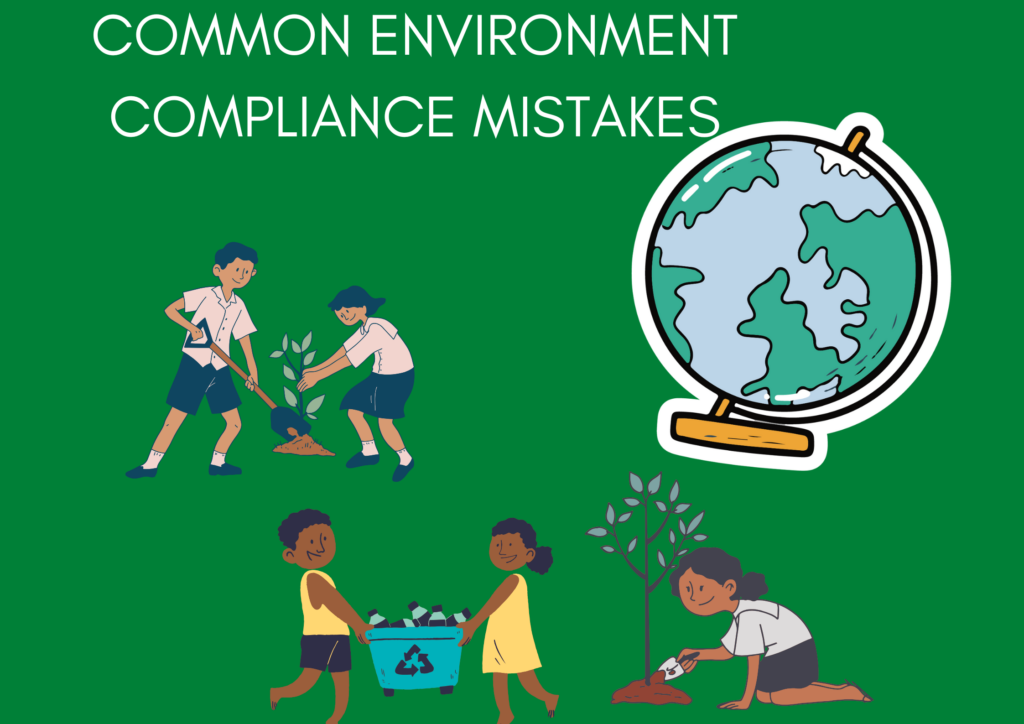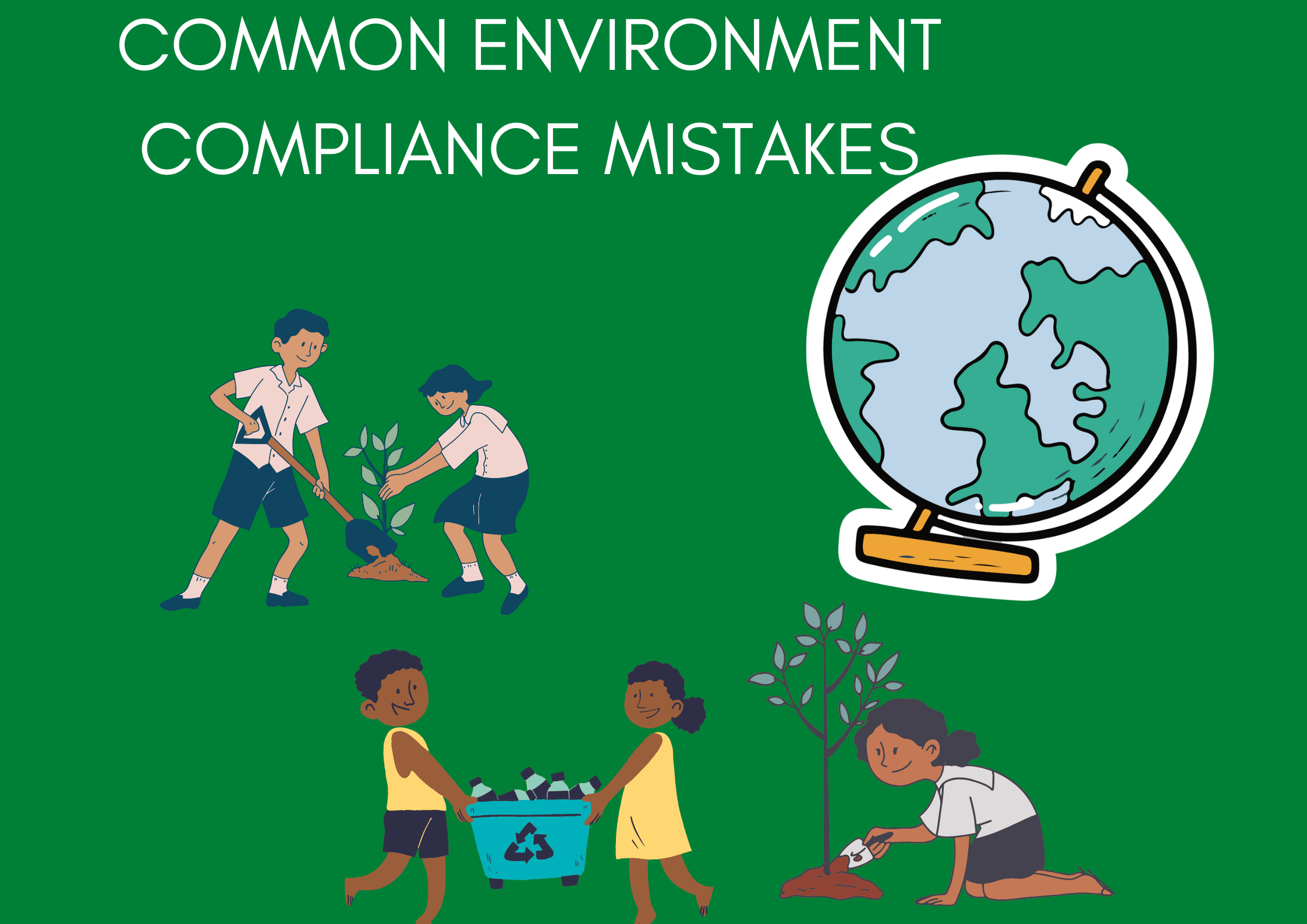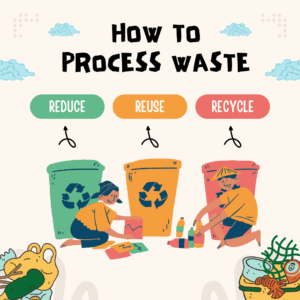As an environmental consultant in Kenya, I’ve come across countless businesses—large and small—who unknowingly fall into costly traps when it comes to NEMA (National Environment Management Authority) compliance. Whether you’re a project developer, investor, manufacturer, or institution, failing to adhere to environmental laws can land you in serious trouble—ranging from project delays and hefty fines to shutdowns and even imprisonment.
To help you stay ahead and protect your investment, here are the most common NEMA compliance mistakes that could cost you lots of money and how to avoid them.
1. Starting a Project Without an EIA License
The Mistake: Many developers rush to start construction or operations without securing an Environmental Impact Assessment (EIA) license from NEMA.
The Risk: Starting a project without an EIA license is a criminal offense under the Environmental Management and Coordination Act (EMCA), 1999. NEMA can stop your project entirely, slap you with a fine of up to KES 2 million, or even jail the responsible parties.
How to Avoid It: Always conduct a proper EIA and get approval before breaking ground. Engage a registered NEMA Lead Expert early in your planning stage to guide you through the process.
2. Using Quacks Instead of Registered Environmental Experts
The Mistake: Some project owners hire unregistered or underqualified individuals to conduct EIAs or environmental audits.
The Risk: Reports prepared by unregistered consultants are automatically invalid. If discovered during review or inspection, your application will be rejected, and any approvals based on that report can be revoked.
How to Avoid It: Always confirm your consultant is a NEMA-registered Lead or Associate Expert. You can cross-check their credentials through the official NEMA database.
3. Failure to Conduct Annual Environmental Audits (EA)
The Mistake: Many operational projects skip the legally mandated Annual Environmental Audit after receiving their EIA license.
The Risk: Failure to submit annual EAs may lead to penalties, suspension of your license, or revocation of operational permits.
How to Avoid It: Make environmental audits part of your yearly compliance calendar. A good consultant will not only prepare the EA report but also advise you on improving your operations to reduce environmental risks.
4. Ignoring Public Participation in the EIA Process
The Mistake: Some developers treat public participation as a formality or skip it altogether.
The Risk: Ignoring or manipulating public participation can lead to lawsuits, community backlash, and rejection of your EIA report by NEMA.
How to Avoid It: Genuinely involve stakeholders—residents, local leaders, government agencies—early in the process. Document their concerns and show how your project will mitigate impacts.
5. Environmental Misreporting or Greenwashing
The Mistake: Providing false, misleading, or incomplete data in your environmental reports.
The Risk: Misreporting is considered fraud. If NEMA finds out, you may face prosecution, fines, and project closure. Your business reputation may also take a massive hit.
How to Avoid It: Be honest and transparent in all your submissions. Hire experienced consultants with integrity who won’t compromise their professional ethics.
6. Ignoring the EIA Conditions of Approval
The Mistake: After receiving the EIA license, some developers forget the license comes with specific conditions—such as planting trees, managing waste, or installing mitigation measures.
The Risk: NEMA may conduct random inspections and revoke your license if you’re non-compliant. This can halt your operations and result in expensive corrective actions.
How to Avoid It: Keep a checklist of all your license conditions and assign responsibilities within your team. Your consultant should help you implement and monitor these conditions throughout the project lifecycle.
7. Improper Waste Management
The Mistake: Discharging untreated effluents, open burning of waste, illegal dumping, and failure to segregate hazardous waste are common errors.
The Risk: Violations of solid waste and liquid waste regulations attract fines of up to KES 4 million or imprisonment. Environmental damage may also lead to lawsuits from affected communities or NGOs.
How to Avoid It: Understand and comply with the Waste Management Regulations. Have a documented waste management plan and work with licensed waste handlers.

8. Failure to Monitor and Report on Environmental Performance
The Mistake: Many businesses operate on a “submit and forget” basis once they receive approval. They don’t track their environmental performance.
The Risk: Without ongoing monitoring, you won’t catch emerging risks early—like pollution, emissions, or noise violations. NEMA may penalize you during inspection, and you’ll spend more fixing problems later.
How to Avoid It: Put in place Environmental Management Systems (EMS) and KPIs. Regular internal audits and monitoring can help you stay on top of your game.
9. Lack of Compliance Documentation
The Mistake: Some projects lack organized documentation for environmental compliance—no reports, monitoring records, or licenses on-site.
The Risk: NEMA officials often conduct site visits without prior notice. If you don’t have documents to show compliance, you’ll be assumed non-compliant.
How to Avoid It: Maintain an updated compliance file on-site with all licenses, reports, and monitoring records. Digitize them for easy retrieval.
10. Overlooking Other Sector-Specific Approvals
The Mistake: Focusing only on NEMA and forgetting about approvals from WRMA (Water Resources Authority), DOSHS (Occupational Health), EPRA, or county government.
The Risk: You might get NEMA approval but still face shutdowns or fines from other regulatory agencies.
How to Avoid It: Engage a knowledgeable environmental consultant who understands the entire regulatory landscape. Integrated compliance saves money and time.
Final Thoughts: Prevention is Cheaper Than Penalty
Environmental compliance isn’t just a legal formality—it protects the environment, your business, and your bottom line. Most of the mistakes above are avoidable if you engage the right professionals early, understand your obligations, and stay proactive.
If you’re unsure about your NEMA compliance status, or you’re planning a new project, don’t wait for penalties to hit. Get a professional environmental compliance check today.
Need Help?
As a NEMA-registered environmental consultant, I help businesses in Kenya navigate the EIA and audit process, maintain compliance, and avoid costly mistakes. Let’s ensure your project stays on track—sustainably and legally.
📩 Reach out today at valeriekinoti@gmail.com for a free consultation or compliance review.




